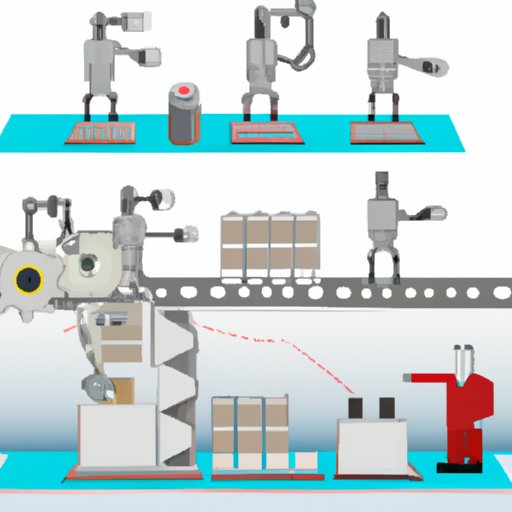Introduction
Robots are machines that are programmed to perform specific tasks autonomously. They are becoming increasingly common in many aspects of life, from manufacturing to healthcare. As technology advances, robots will be able to do more complex tasks and even think for themselves. This article will explore how robots can help us in the future.
Automation of Everyday Tasks
Robots can help automate mundane tasks in a variety of settings. In the home, robots can vacuum, mop, and clean windows. In the office, robots can sort mail, answer phones, and take orders. In industrial settings, robots can assemble products, paint surfaces, and weld components. By automating these tasks, robots can save time and money, freeing up people to focus on more creative pursuits.
Improved Medical Care
Robots can also be used to assist doctors and surgeons in the medical field. For example, robots can be used to help with diagnosis and surgery, as well as delivering medicines and treatments. The use of robots in medicine can reduce human error, increase accuracy, and speed up procedures. Additionally, robots can provide remote medical assistance to areas where access to healthcare is limited.
Increased Productivity
Robots can also be used to improve efficiency in a variety of industries. For instance, robots can work faster and more accurately than humans, allowing companies to produce more goods in less time. They can also be used to transport materials, which can reduce the amount of time it takes to move items from one place to another. Furthermore, robots can be programmed to follow precise instructions, making them well-suited for repetitive tasks such as packaging and labeling.
Environmentally Friendly Solutions
In addition to increasing productivity, robots can also help reduce emissions and conserve resources. For instance, robots can be used to monitor air quality and detect pollutants in the environment. They can also be used to clean up hazardous materials, such as oil spills or chemical waste. By using robots instead of humans for these tasks, we can minimize the risk of exposure to dangerous substances.
Increased Safety in Hazardous Situations
Robots can also be used to explore dangerous areas that would be too hazardous for humans. For example, robots can be used to explore underwater caves or investigate the aftermath of a natural disaster. By sending robots into these environments, we can gain valuable information without putting people in harm’s way. Additionally, robots can be used to protect people from harm in situations where human intervention is not possible.
Enhanced Education Opportunities
Robots can also be used to teach students at all levels. For instance, robots can be used to engage students in interactive lessons and help them develop problem-solving skills. Additionally, robots can be used to provide personalized instruction, allowing teachers to tailor their lessons to the needs of each student. With robots, we can create an engaging and effective learning environment for students of all ages.
Improved Logistical Efficiency
Finally, robots can be used to speed up delivery times and reduce costs associated with transportation. For example, robots can be used to deliver packages directly to customers, eliminating the need for middlemen. Additionally, robots can be used to transport goods from one place to another quickly and efficiently. By using robots instead of humans for these tasks, companies can save time and money while improving customer service.
Conclusion
Robots have the potential to help us in a variety of ways in the future. From automation of everyday tasks to improved medical care and increased safety in hazardous situations, robots can make our lives easier and more efficient. They can also be used to enhance education opportunities, improve logistical efficiency, and provide environmentally friendly solutions. As technology continues to advance, robots will continue to play an important role in our lives.
(Note: Is this article not meeting your expectations? Do you have knowledge or insights to share? Unlock new opportunities and expand your reach by joining our authors team. Click Registration to join us and share your expertise with our readers.)
